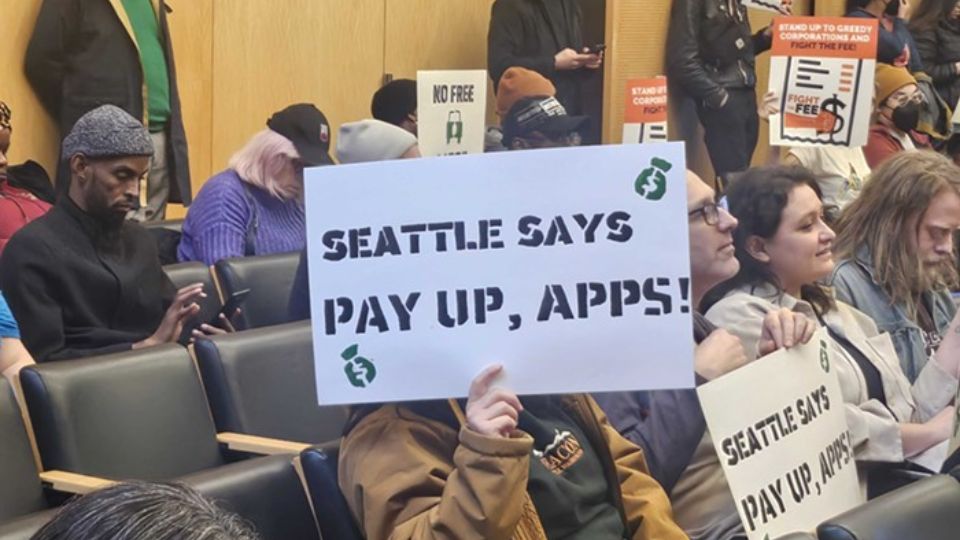The Seattle City Council is talking about a new bill that would change the App-Based Worker Minimum Payment Ordinance. The bill, supported by Seattle City Councilmember Sara Nelson, aims to lower labor expenses for network companies, while ensuring that app-based workers still receive a minimum level of earnings.
Council Bill 120775 wants to make changes to the current minimum wage law. It would remove the adjustments made to the minimum wage, reduce the amount paid per mile, and eliminate the mileage factor. If this bill passes, the new minimum payment standard would be $19.97 per hour, and drivers would receive an additional 35 cents per mile for the time they spend driving. The minimum payment does not include any tips.
The current rule states that network companies must pay at least 44 cents per minute and 74 cents per mile for the time spent and distance traveled. Due to a new law that was put into effect on January 13th, companies such as Doordash have started charging additional fees to comply with regulations. As a result, the cost of orders has gone up by a significant amount.
“This legislation would still allow app-based workers to choose whether or not to accept a job offer and to decide when they want to work. It would also prevent companies from punishing app-based workers for exercising their rights,” Nelson said during a meeting of the Seattle Governance, Accountability, and Economic Development Committee on Thursday.
Also Read: One Transplanted Wolf in Colorado Has Died and Others Have Stopped Emitting GPS Signals
Based on a fiscal note, if changes are made to the App-Based Worker Minimum Payment Ordinance, it would probably affect the Seattle Office of Labor Standards financially. This means they might have to spend more money to update the rules.
In the 2024 budget, the Office of Labor Standards received around $493,000 to put into effect the current App-Based Worker Minimum Payment Ordinance.
The Seattle City Attorney’s Office may also be affected by providing advice to the Office of Labor Standards on the updated rules and enforcement procedures.
Based on a recent survey by Drive Forward, a non-profit organization that supports app-based delivery drivers in Washington state, the time drivers have to wait between orders has changed. Before January 13, when a new law was implemented, 41% of drivers waited less than five minutes. However, after that date, 56% of drivers reported waiting more than 30 minutes. The amount of money earned per hour, including tips, has decreased by 11% to 50%.
According to recent data from DoorDash, city retailers have earned about $7 million less than expected in a six-week period after the law took effect earlier this year.
Any potential changes to the proposed bill will be discussed before the committee takes a final vote on May 9. The bill may be brought before the entire Seattle City Council for a final vote as soon as May 21.



Leave a Reply